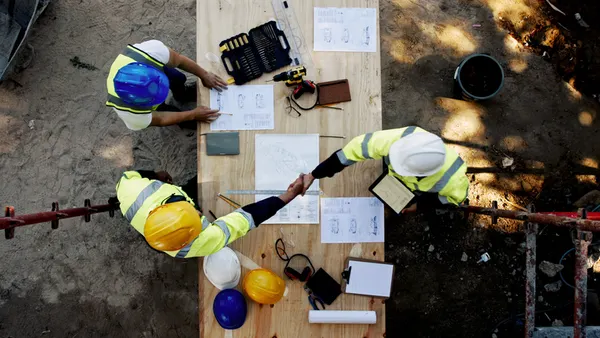Chad Prinkey is CEO of Well Built Construction Consulting, a Baltimore-based firm that delivers strategic consulting, facilitation services and peer roundtables for construction executives. Opinions are the author’s own.
Buyers of all types have been using the term “apples to apples” for several decades; however, the term is unrealistic for use in selecting contractors due to the inherent differences between products, such as apples, and services, like construction.
And yet, how often are you confronted by buyers who tell you they’re comparing apples to apples between you and your competitors? How often are you using this exact phrase when you’re speaking with your subs and suppliers?

Going around telling your buyers “There’s no such thing as apples to apples” probably won’t work, but you must be prepared to handle such ill-informed statements — while also working to prove that you are an orange.
Being better matters
As I described above, the low bid attitude creates an adversarial environment for everyone involved. Prime contractors often fight with owners over delay claims and with their subcontractors over change orders.
Subs fight with primes over change orders and with each other over back charges. Owners are under constant fire from all sides and trying to prevent overruns.
Meanwhile, everyone is trying to preserve the little margin they have and capitalize on any opportunity to take advantage of the situation to pick up a little more profit. This current reality has a notable added adverse effect of eroding trust among all parties, making it difficult to convince a jaded client that you are genuinely different.
Construction buyers, especially professional buyers like developers, government organizations, primes and large corporations, can be quite skeptical toward companies like yours. Nevertheless, some buyers have made significant strides in viewing their construction providers as partners, which is beneficial for the industry.
In addition to finding those buyers, you will need to convert some others into buyers with proof that you are amazing.
Where to begin
Being a better company is the prerequisite for selling value over price. Can you honestly say you’re different and better than your competition today? If not, this is your starting point.
Nobody is perfect, but there are superior service providers in our industry today, and if you want to win more at better margins, you must be one of them. The conundrum for many contractors is that it takes profit to become superior service providers.
Profit is what allows us to invest in better training, tools, personnel and technology. It’s a classic chicken-versus-egg situation. Are superior service providers so because they have more ability to invest (chicken) or did their superior service enable them to make better profits (egg)? Let me settle this age-old debate once and for all: It’s the egg.
While it is true that increased profits make it easier to reinvest, at some point, every top company decided to commit to excellence in the first place. So many things that contribute to excellence cost little to nothing to implement.
Can’t afford a training department? Do it yourself until you can afford one. Don’t have leading technology? Take an Excel class and bootstrap until you can buy it.
The bottom line is that so many sales problems are solved, or at least made easier to solve, by operational excellence. Being more efficient, safer and more consistent are key sales strategies, and these goals must be accomplished cost effectively if you’re ever going to build profits to reinvest.
Break some norms
With your operational strength by your side, you can enter selling environments with confidence that the buyer would be making a huge mistake not to hire your firm. That confidence is power. If you were certain your firm was the right pick for the project, how would you act in the following scenarios?
- Requests for bids from strangers.
- Requests for preconstruction services without a contract or even verbal commitment.
- BAFO rounds designed to drive the lowest price on leveled bids.
I hope your respective answers would be:
- Call, introduce yourself, and suggest a meeting to explore your fit for the project.
- Decline to provide freecon without commitments in advance.
- Contact the decision maker and ask, “Price aside, who do you want on this project and why?” Then, negotiate the project directly.
When you’re demonstrably better, the customer needs you more than you need them. Lean into your operational excellence and win more target work at the margins you deserve.


































